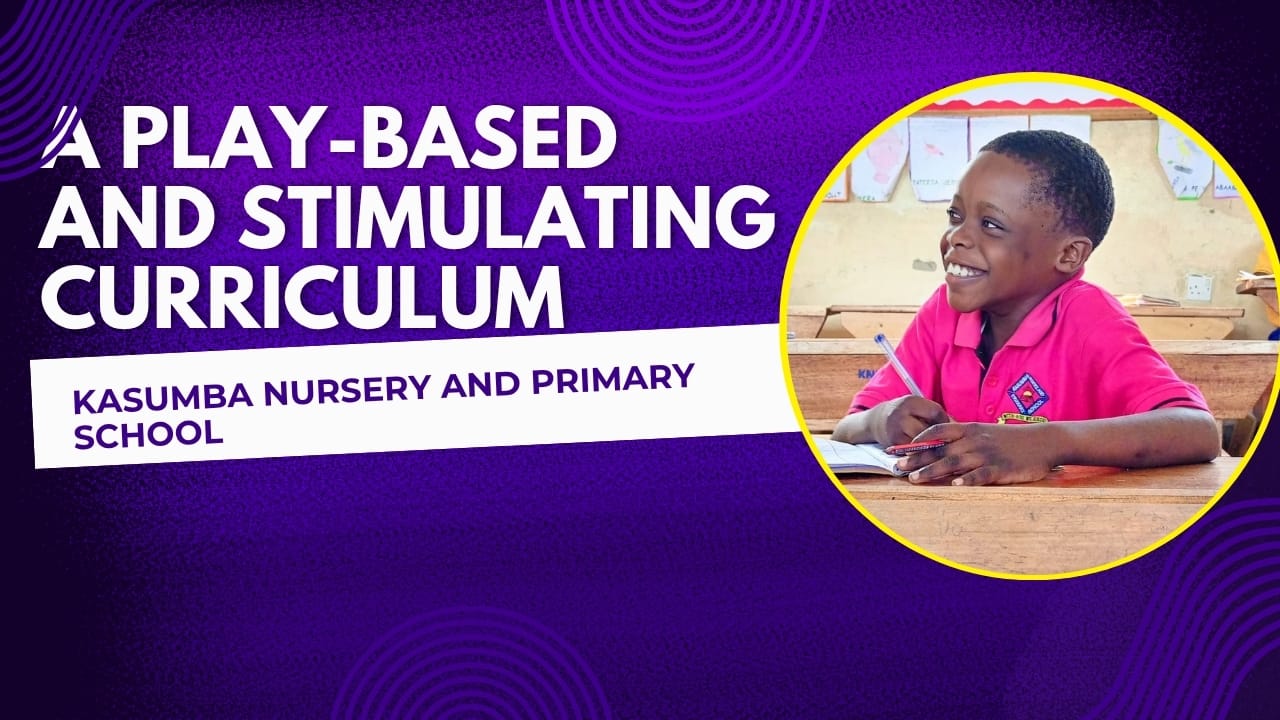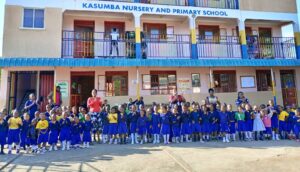Introduction
Understanding the Role of Play in Early Childhood Education
Play‑Based Curriculum at Kasumba nursery and primary school is the driving force behind joyful experiences at Kasumba Nursery and Primary School. This thoughtfully designed curriculum integrates guided play, free exploration, and hands‑on discovery to engage children from the first minutes of class. In a Play‑Based Curriculum at Kasumba nursery and primary school’s environment, children build strong academic and life‑long learning foundations naturally, without stress or traditional drills.
Play‑Based Curriculum at Kasumba nursery and primary school thrives through opportunities in dramatic play corner, building blocks, puppet shows, art exploration, and outdoor games. Students explore number, language, social skills, and physical coordination as part of meaningful activities. Teachers act as facilitators, observing interests, scaffolding challenges, and encouraging reflection, to support deeper learning within the Play‑Based Curriculum at Kasumba nursery and primary school’s framework.
This approach aligns perfectly with global research showing play-based learning illuminates early math, literacy, and social-emotional strength more effectively than passive rote instruction. Play‑Based Curriculum at Kasumba nursery and primary school helps children develop independence, initiative, creativity, and problem solving in a warm, inclusive environment, while preparing them academically.
Table of Contents
What is a Play-Based Curriculum?
A play-based curriculum places children at the center of their learning experiences. Unlike traditional methods where students passively absorb information, this approach encourages active participation. It blends structured activities with unstructured play, allowing children to explore, ask questions, and make discoveries.
In such an environment, play isn’t a break from learning, it is learning. Children practice problem-solving with puzzles, improve motor skills with crafts, and understand numbers while counting toy animals. Every playful moment is a meaningful opportunity for growth.
About Kasumba Nursery and Primary School
Located in Mubende District, Mubende Municipality along Mubende Fortportal Road, Kasumba Nursery and Primary School has become a beacon of progressive education. With its colorful classrooms, passionate teachers, and playful learning environment, it offers a fresh and effective take on early childhood education.
Kasumba nursery and primary school doesn’t just teach students, it nurtures them. With small class sizes, personalized instruction, and a dedication to inclusivity, every child gets the attention and support they need to thrive.
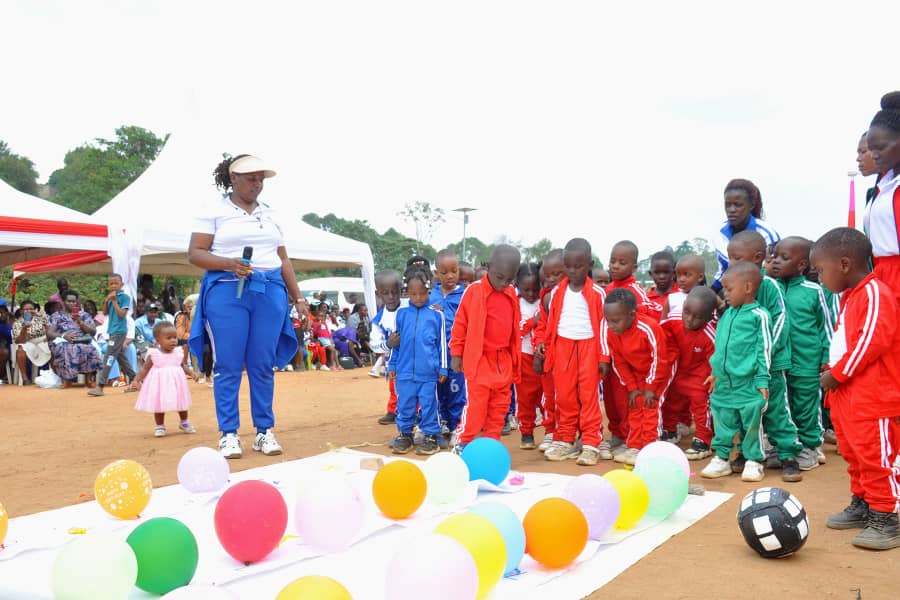
Why Kasumba Nursery and Primary School Chooses a Stimulating and Play-Based Approach
At Kasumba nursery and primary school, the belief is simple: when children enjoy learning, they learn better. The school’s leadership understands that young minds are like sponges, not passive, but actively seeking experience and engagement. A stimulating curriculum filled with play, exploration, and creativity prepares children not just for exams, but for life.
Rather than focusing solely on rote memorization, Kasumba nursery and primary school builds curiosity, critical thinking, and emotional intelligence, skills essential for the 21st century.
Rooted in Child-Centered and Experiential Learning
Kasumba nursery and primary school’s approach is grounded in well-established educational theories, including those by Montessori, Piaget, and Vygotsky. These frameworks emphasize learning through doing, collaboration, and discovery.
In every classroom, you’ll find children actively participating in their own learning journey. Whether it’s role-playing in a pretend grocery store or working together to build a tower from wooden blocks, experiences are at the center of education at Kasumba nursery and primary school.
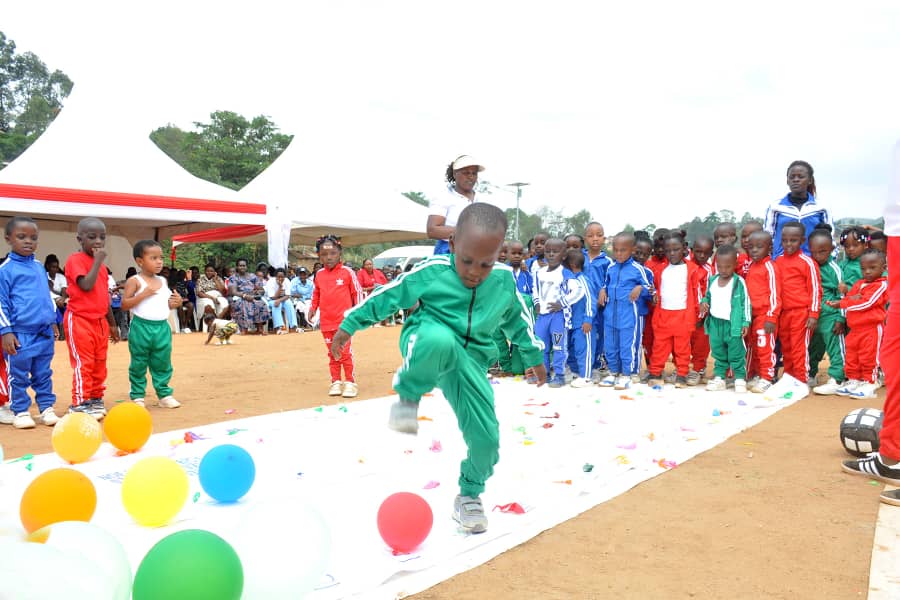
How Play Enhances Cognitive and Emotional Growth
Play activates every corner of a child’s brain. Through games, stories, and creative challenges, children improve memory, focus, and problem-solving. More importantly, they learn to manage emotions, build resilience, and express themselves.
At Kasumba nursery and primary school, children are encouraged to take risks in a safe environment. This helps develop confidence, autonomy, and emotional strength, traits that serve them well for life.
Building Social Skills Through Play
From sharing crayons to working together in group activities, play naturally fosters social development. Children learn how to take turns, resolve conflicts, and understand different perspectives.
Kasumba nursery and primary school’s classrooms are filled with opportunities for collaborative play. These shared experiences help children form friendships, practice empathy, and develop strong communication skills.
Play-Based Methods for Developing Communication Skills
Language blooms in playful settings. When children engage in storytelling, puppet shows, and dramatic play, they expand their vocabulary, improve sentence structure, and develop active listening.
Kasumba nursery and primary school integrates language learning into every playful activity. This holistic method helps even the shyest child find their voice and gain confidence in expressing ideas.
Counting Blocks and Puzzles: Learning Math Through Play
Math isn’t just numbers on a page, it’s patterns, shapes, and relationships. At Kasumba nursery and primary school, children play with blocks, beads, and puzzles to grasp early math concepts.
This hands-on approach helps build a strong number sense and introduces foundational skills like counting, sorting, and measuring. It makes math exciting, tangible, and stress-free.
Arts, Drama, and Music in the Play Curriculum
Creativity is just as crucial as literacy and numeracy. Through arts, drama, and music, children learn to express themselves, develop fine motor skills, and boost imagination.
Kasumba nursery and primary school hosts regular music and art sessions, encouraging self-expression and cultural appreciation. Children paint, sing, dance, and perform, all while learning valuable communication and motor skills.
Gross and Fine Motor Skill Development Through Play
Play-based activities support physical development in dynamic ways. Running, jumping, and climbing enhance gross motor skills. Cutting, painting, and building help fine motor coordination.
Kasumba nursery and primary school’s playgrounds, movement sessions, and creative workshops provide ample opportunities for students to grow strong and agile, both physically and mentally.
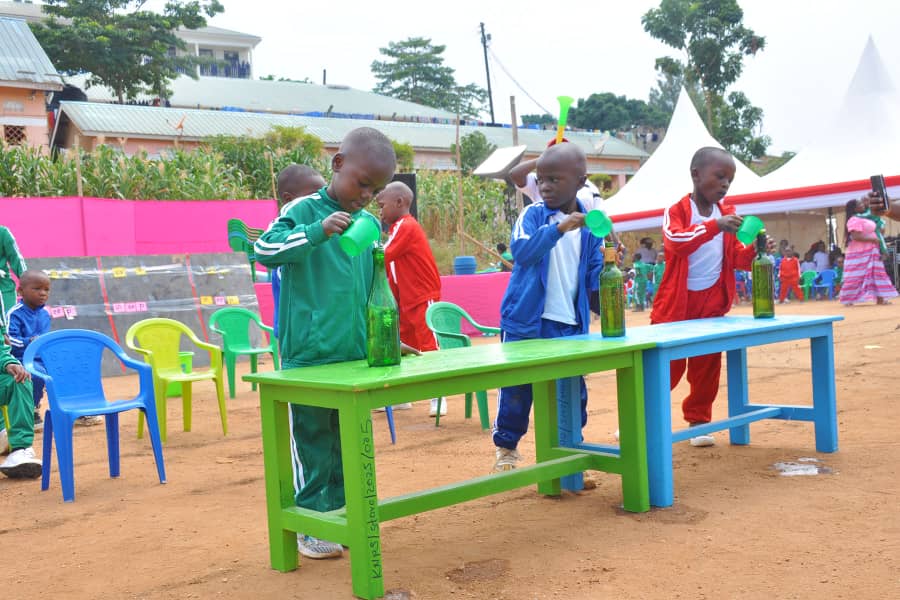
Educators as Facilitators in a Stimulating Environment
At Kasumba nursery and primary school, teachers act as guides, not lecturers. They observe children, ask open-ended questions, and provide materials that inspire curiosity.
This empowering teaching model respects each child’s pace and interests. It allows educators to adapt their strategies to meet individual needs, fostering a deeper and more personal learning experience.
Engaging Parents in Play-Based Learning
Learning doesn’t stop at the school gate. Kasumba nursery and primary school actively involves parents in the educational process. Regular workshops, play days, and parent-teacher meetings create a community of support.
This partnership helps extend the play-based philosophy into the home, reinforcing learning through family interaction.
Observation and Documentation: Measuring Progress in Play-Based Learning
Traditional tests don’t always capture a child’s development. Kasumba nursery and primary school uses observational tools, portfolios, and anecdotal records to track progress.
This approach allows educators and parents to see the whole child, not just academic performance, but emotional, social, and creative growth.
Real-Life Impact of Play-Based Learning at Kasumba
Many graduates of Kasumba nursery and primary school stand out in later grades for their confidence, creativity, and love of learning. Parents report increased engagement, improved behavior, and stronger interpersonal skills.
These stories highlight the long-lasting benefits of Kasumba nursery and primary school’s unique curriculum approach and its powerful influence on young lives.
Creating Stimulating Learning Spaces at Kasumba
Kasumba’s environment is bright, inviting, and full of wonder. Classrooms are designed with cozy reading nooks, discovery centers, and imaginative play areas.
This thoughtful design encourages exploration, reduces anxiety, and sparks joy in learning.
Smart Play: Blending Digital Tools with Play-Based Learning
Technology, when used wisely, can enhance play. At Kasumba nursery and primary school, digital games, storytelling apps, and interactive whiteboards are used to complement, not replace, hands-on activities.
This balanced approach prepares children for the digital age without sacrificing play’s foundational value.
Addressing Common Misconceptions About Play-Based Learning
Some still believe that play isn’t serious learning. Kasumba nursery and primary school challenges this myth daily. Through evidence, experience, and results, they prove that play is not a distraction, it’s the foundation of all meaningful learning.
Comparing Kasumba’s Approach with Global Standards
Kasumba nursery and primary school’s play-based curriculum stands tall against international best practices. It aligns with educational trends in Finland, New Zealand, and Reggio Emilia, systems known for excellence in early learning.
This global alignment ensures students are prepared for a diverse and rapidly changing world.
The Power of a Play-Based and Stimulating Curriculum at Kasumba Nursery and Primary School
At Kasumba Nursery and Primary School, play is powerful. It’s how students learn to think, solve problems, connect with others, and discover who they are. The stimulating environment creates curious, confident, and capable learners ready for the world beyond the classroom.
By choosing Kasumba, parents choose more than education, they choose a joyful, empowered childhood for their children.

FAQs
What ages does Kasumba Nursery and Primary School serve?
Kasumba caters to children from preschool age through primary school, roughly ages 3 to 12.
Is play-based learning effective for academic success?
Yes, research shows that play-based learning builds the foundation for future academic achievement, especially in literacy and math.
How are children assessed in this curriculum?
Progress is observed and documented through portfolios, teacher notes, and developmental milestones rather than traditional testing.
Do students still learn to read and write in a play-based curriculum?
Absolutely. Literacy is integrated into play, helping children develop reading and writing skills naturally and joyfully.
Is technology used in the classrooms?
Yes, technology is used in moderation to enhance, not replace, traditional play-based methods.
How can parents support the play-based approach at home?
By encouraging imaginative play, reading together, and participating in hands-on activities, parents can extend the learning journey beyond school.
Conclusion:
A Future-Forward Curriculum Rooted in Joyful Learning
The power of a play-based and stimulating curriculum at Kasumba Nursery and Primary School lies in its ability to ignite curiosity, nurture potential, and build a lifelong love of learning. It’s more than a teaching method, it’s a vision for raising capable, creative, and compassionate citizens of the world. Through play, Kasumba is shaping bright futures, one joyful lesson at a time.

